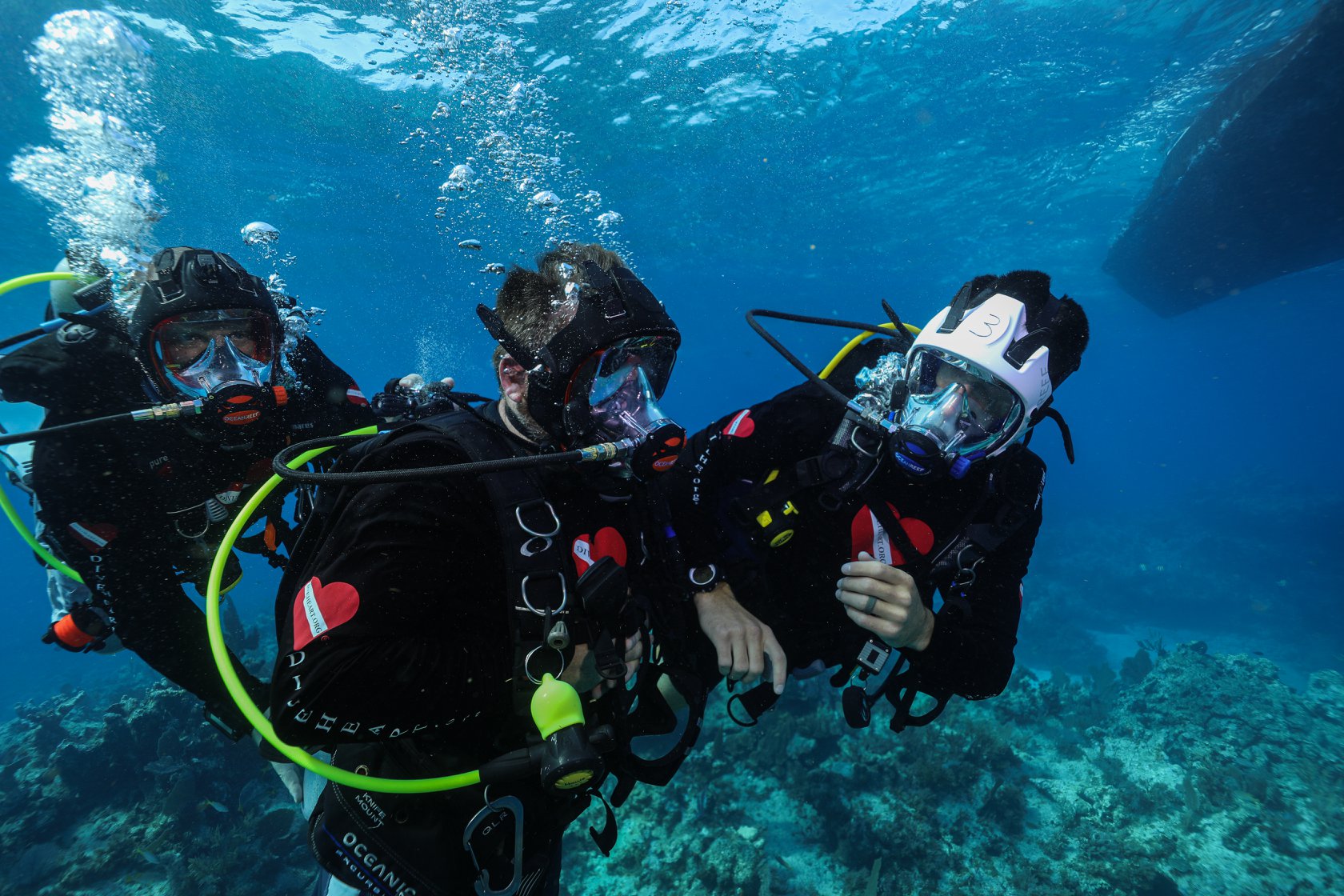
Diveheart
Strike Back at Gravity with Adaptive Scuba Diving on Catalina Island
The inclusive scuba practice makes a moment of buoyancy accessible for anyone of any ability.
For almost all of us almost all the time, there is one big thing dragging us down—gravity. It clutches at limbs, tugs on anything that dangles, and pulls us ever downward toward the dirt. Every day is a battle against gravity. But if you want to take a break from the struggle, there is one reasonable way to access a moment of balance and buoyancy—scuba diving. The weightlessness and freedom of being underwater are unlike anything else, a magical and meditative escape from earthly concerns.
For one reason or another, the pressure of gravity is tough on some people’s bodies. Disabilities of all kinds can make attempting physical activity daunting, and the challenges presented by the terrestrial portion of scuba diving can feel overwhelming. There’s a lot of gear, lines, apparatuses, tanks, belts, and flippers. Some of it is heavy, and much of it is cumbersome, not to mention the discomfort of putting on a wetsuit and then wearing it in public. But there is a dedicated practice that allows anyone to overcome those challenges and access the weightless feeling and floating wonder of being under the ocean: adaptive scuba diving.
The set of rules and guidelines behind adaptive scuba is designed to create an inclusive environment for people of any ability level so that anyone interested can access the therapeutic beauty of being underwater. Whether people are experiencing physical or mental disabilities, kinetic issues, or psychological struggles, the ocean can be a place for exploration, exercise, challenge, and meditation.
The non-profit Diveheart has been on the cutting edge of adaptive scuba since the organization’s inception in 2001. They offer a special set of training courses for already-certified scuba divers to become adaptive dive buddies, and each diver with a disability can be paired up with two dive buddies to form a dive team. They also have regular pool diving programs for divers of all levels around the country and week-long adaptive diving trips to Cozumel, Roatán, and other ocean diving locations at least three times a year.
Diveheart’s Founder and President, Jim Elliot, was already a scuba diving instructor when he started working with people with physical disabilities in 1997. He saw firsthand the benefits that adaptive diving could have, both in terms of physical exercise and fitness and emotional well-being and mental health.
In Adapting to Dive, a documentary about Diveheart by filmmaker David Marsh, Elliot speaks about Diveheart’s mission to empower people with disabilities through scuba and to build confidence, independence, and self-esteem simultaneously. Elliot says their goal is to help people change how they think of their bodies. That is to say, Diveheart wants to shift a person’s self-image away from any potential disabilities and into a new identity as a scuba diver.
